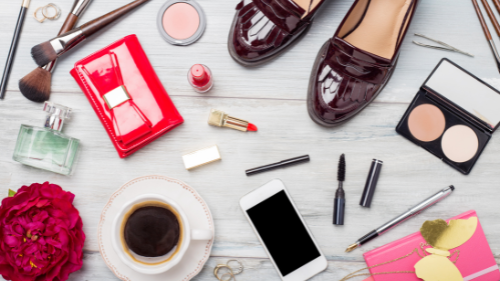The Psychology Behind the Objects You Decide to Keep and Those You Discard
The objects you keep and those you decide to throw
away are not just belongings; they are mirrors of your emotional world. Behind
each thing you choose to keep or let go of, there are memories, beliefs, and
connections that you might not even be aware of. Your relationship with objects
speaks to your way of attaching, your fears, and your way of facing change.
This emotional bond with material things is natural
because objects become symbols of moments, people, or stages of your life. But
when you accumulate more than necessary or find it hard to let go of things you
no longer use, it's a sign that something deeper is happening.
Why You Keep What You Keep and Throw Away What You
Throw Away
Decisions about what you keep or discard are often
guided by emotions rather than the actual utility of the objects. Some common
reasons are:
- Emotional Attachment:
You keep things that remind you of someone or an important moment, even if
they no longer have a use. An object becomes a symbol of affection or
identity.
- Fear of the Future:
You find it hard to throw things away "just in case you need them
someday," even if that day never comes. It's a way of seeking
security in material things.
- Guilt or Commitment:
Keeping gifts you don't like or use because you feel that throwing them
away would be disrespectful.
- Idealization of the
Past: Keeping objects that represent a version of
yourself that no longer exists, like clothes that no longer fit or
memories of a past stage.
On the other hand, what you discard often reflects
what you want to leave behind: broken relationships, past mistakes, or parts of
your life you prefer to forget. But sometimes, impulsively throwing away
important things is a sign that you're trying to escape emotions you still need
to process.
What Your Relationship with Objects Reveals About
Your Emotional World
Your way of keeping or discarding objects can be a
window into your inner world:
- If You Accumulate
Without Letting Go: You might fear change or find security in
the past. Keeping things "just in case" reflects a fear of
scarcity or the future.
- If You Find It Hard to
Keep Memories: You might fear facing painful emotions. Sometimes,
avoiding keeping memories is avoiding connecting with your emotional side.
- If You Discard
Impulsively: You might be repressing emotions, like the
need to close cycles more consciously and not abruptly.
How to Heal Your Relationship with What You Keep
and What You Discard
- Make the Emotional
Bond Conscious: Ask yourself: "Why do I really keep
this?" or "What does this object symbolize for me?"
Sometimes, recognizing the emotional value is enough to let go without
guilt.
- Accept That Letting Go
Is Not Forgetting: Getting rid of an object doesn't erase the
memory or the importance it had. The memory lives in you, not in things.
- Create Rituals to
Close Cycles: If an object is hard to let go of, thank it
for the role it played in your life before letting it go.
- Be Honest with Your
Present: Keep what represents you today, not what
belonged to a past version of yourself.
If you feel that your relationship with objects is
deeper than it seems and that letting go is a painful or confusing process,
therapy can help you understand what you're really holding onto. Often, the
problem is not in the things but in what they symbolize.
Keeping or letting go is more than a material
decision; it's an emotional decision. If you want to discover what your objects
say about you and learn to let go with freedom, we're here to accompany you in
that process.
RewPaz



